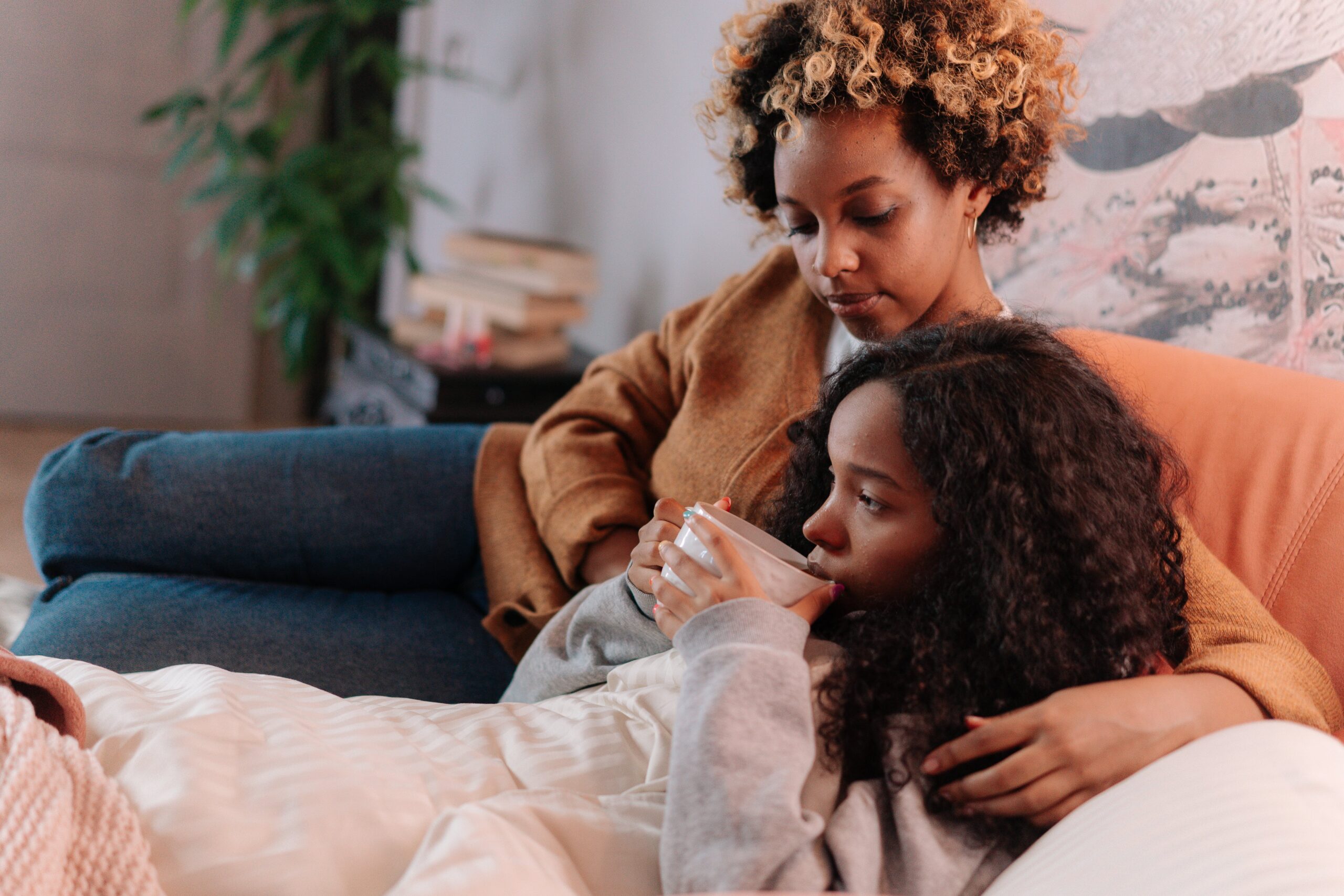Many parents don’t prepare for conversations with their children that require finesse and openness. A pivotal discussion is the one parents have to have with their children about periods. Guiding young minds through the maze of menstruation is complex. For young Black girls, the conversation often carries additional layers of nuance.
Unfortunately, conversations about women’s reproductive health are seen as taboo. Honestly, making the conversations about unique experiences of young Black girls all the more crucial. A recent study conducted by Thinx Inc., a company providing sustainable solutons to menstration, titled “State of the Period 2023,” sheds light on the discomfort many young Black teens feel about conversations regarding their periods.
To get more insight, we sat down with Dr. Raegan McDonald-Mosley, MD, MPH, the CEO of Power to Decide, a national nonprofit dedicated to advancing reproductive well-being for all. Dr. McDonald-Mosley shares invaluable insights on bridging the gap, dispelling taboos, and empowering young Black girls to embrace their bodies confidently.
21Ninety: In your experience, do you feel there is a disconnect with young Black teens regarding discussing their periods? If so, why?
Dr. Raegan: In communities of color, and particularly the Black community and culture, it is often perceived as taboo to talk about sexual health topics. In my experience, there is often an outsized perpetuation of period stigma that can be harmful to people starting their period or navigating difficulty with their periods.
Many of us did not receive adequate sexual health education from our parents, schools, or in communities. In turn, we do not feel equipped to have these conversations with our own children, nieces and nephews. It is critical we work to overcome discomfort and center the experiences of young Black teens. We must ensure that they have safe spaces to learn about what is happening to their bodies and can ask questions. Knowledge is power, and our young people have the right to feel comfortable in their rapidly changing bodies.
According to the study, many negative connotations surround periods. Where do you think that started?
Dr. Raegan: Society stigmatizes periods and has for a long time. Unfortunately, many negative connotations are still around today. The lack of comprehensive sexual education and the patriarchal society we live in perpetuates the idea that periods are something to be embarrassed about. The feeling of shame around your period can start even before a young person has their first period.
With these stigmas being so ingrained in our society, many young teens and adults feel uncomfortable having open, honest conversations around their periods and other sexual health.
You focus on ensuring women have access to information about their reproductive systems. Where can young people learn more about periods outside their schools health curriculum? How can we make them feel comfortable asking for resources?
Dr. Raegan: Comprehensive, medically accurate sex education in schools allows young people to thrive. Yet, not all young people have access to comprehensive sex education. At times, even when they do, young people turn elsewhere, such as their peers, social media, and parents, to learn about sexual and reproductive health.
Parents play a critical role in sparking open, honest conversations around sexual and reproductive health in young peoples lives. But, even with parents being a trusted resource for teens, they don’t always have the answers. Also, not every teen has a trusted adult they can go to. Luckily, there are many resources online to help teens learn about periods and their bodies – such as Planned Parenthood or AMAZE. Adults who may be hesitant to have this conversation but want their teen to have the information can leave a book on the kitchen table or text their teen a link to a helpful article or online resource.
How can adult role models and parental figures approach the conversation about periods with the teens who look up to them in a way that makes them feel comfortable but is still informative? Are there any topics we should avoid or tread carefully about?
Dr. Raegan:
As a mother of two teens and an OBGYN, I know first-hand how critical it is for young people to have a safe place to discuss sexual and reproductive health topics. But I also know that its sometimes difficult to broach a subject you may not have experience with or feel you know enough about to answer the questions. I talk about these topics all day long in my work life, yet I still find it challenging to converse with my own kids about sexual health topics.
Sparking the period talk with the teen in your life starts with an open mind, a listening ear, and maybe some questions in your back pocket. Sharing your experience around periods, asking your young person what they’ve heard or might be afraid of about their period, and how you can best support them through this change are all great conversation starters. It is important to include children without a uterus in these conversations so they can support their friends and have the information and perspective to combat period stigma.
By proactively sparking open and honest conversations, parents and role models can establish themselves as a safe space for the young person in their life as they grow up and learn more about themselves and their bodies.
